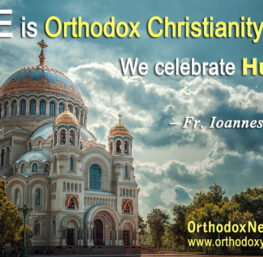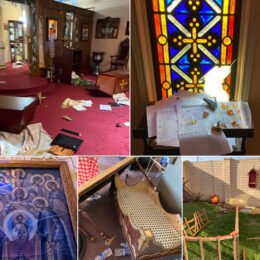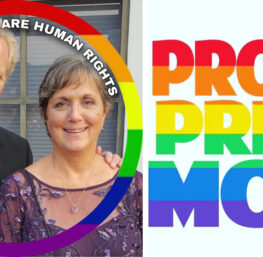Gannett News Service June 24, 2006
After a lifetime in traditional black churches, Robert Aaron Mitchell discovered the sights, smells, sounds and ancient traditions of the Orthodox church.
“I discovered Orthodoxy while I was on the Internet one day back in 2001, and I was so drawn to it that I had to go attend a liturgy,” Mitchell says. “I had no frame of reference for these traditions, but suddenly, I felt like this void was filling in my life. I felt like I was finally coming home.”
Mitchell, 48, a project manager for AT&T in Detroit, is among a small but growing number of black Americans, many of them professionals, who are joining Orthodox churches. That’s the branch of Christianity that split with Rome about 1,000 years ago and is known for colorful
icons and the ethnic traditions it preserves in religious customs.
The attraction, Mitchell says, lies in discovering that for thousands of years, Africans played a vital role in the Orthodox world.
The Rev. Moses Berry, an Orthodox priest and pastor of Theotokos “Unexpected Joy” Orthodox Mission, Ash Grove, Mo., began his career as a Protestant preacher, a family tradition reaching back into the 1800s. Then, in 1983, he visited an Orthodox church in Atlanta and was so moved that he retrained to become a priest in the Orthodox Church in America. He also helped to organize the coalition of clergy, scholars and lay leaders coming to Detroit.
“Reconnecting with the Orthodox tradition connects us with the earliest Christian traditions,” Berry says. “It means that, when our ancestors were brought here as slaves, they didn’t arrive here with just a collection of tribal religions. They didn’t all discover Christianity here. In fact, many Africans already were part of the ancient Christian church.”
That was especially true for Africans with roots in the eastern part of the continent, Laike-Mariam Misikir, 50, says. An automotive engineer from Ann Arbor, Mich., Misikir is from a family of Orthodox priests that extends back many centuries in Ethiopia. In Detroit, Misikir serves as a subdeacon, assisting priests during liturgies.
“Unlike many of the African Americans who have come to Orthodoxy, I was born into the faith in Addis Ababa, Ethiopia,” Misikir says. “The traditions are so deep, so beautiful.”
“I can remember as a small child, attending all night liturgies with my grandparents. I would be down there near their feet, listening to the chanting and African drums, watching everything going on around me. It was like being transported into heaven.”
Mitchell nodded as Misikir described the scene. “The Orthodox church fills your senses,” Mitchell says. “You smell the incense, see the icons and the candles burning, and there’s
movement, too. People are crossing themselves. There are processions sometimes. So much is happening all around you in the church.”
Misikir says, “It’s a little difficult to explain all of this to most Americans. At first, when I tell people I’m Orthodox, often they don’t understand me and think I’m Jewish.”
Originally published June 24, 2006




An excellent change I think. Perhaps this will make inroads in those communities that believe Islam is the “African” religion.
The Holy Spirit is bringing people into Holy Orthodoxy. Black is beautiful!
Thankfully the LORD embraces all and is colourblind when humans
are not that way. Now the Faith can and will spread among our
Afro-American friends. Opening our mouths to share the Faith while
living the Faith, will bear fruit in our midst.
I too rejoice in the beginning, at last, of what I hope to be a flood of black Americans coming into the Church for only then shall the wounds of racism that we all carry, black or white, be healed. I quote the words of Nun Katherine:
This was part of an address she gave at the 10th annual Ancient African Christianity and African America Conference in Kansas City in 2003.
We must realize that all of us non-blacks will have to face our own wounds, our own one-dimensional sense of Christianity as part of the process of coming together as we should.